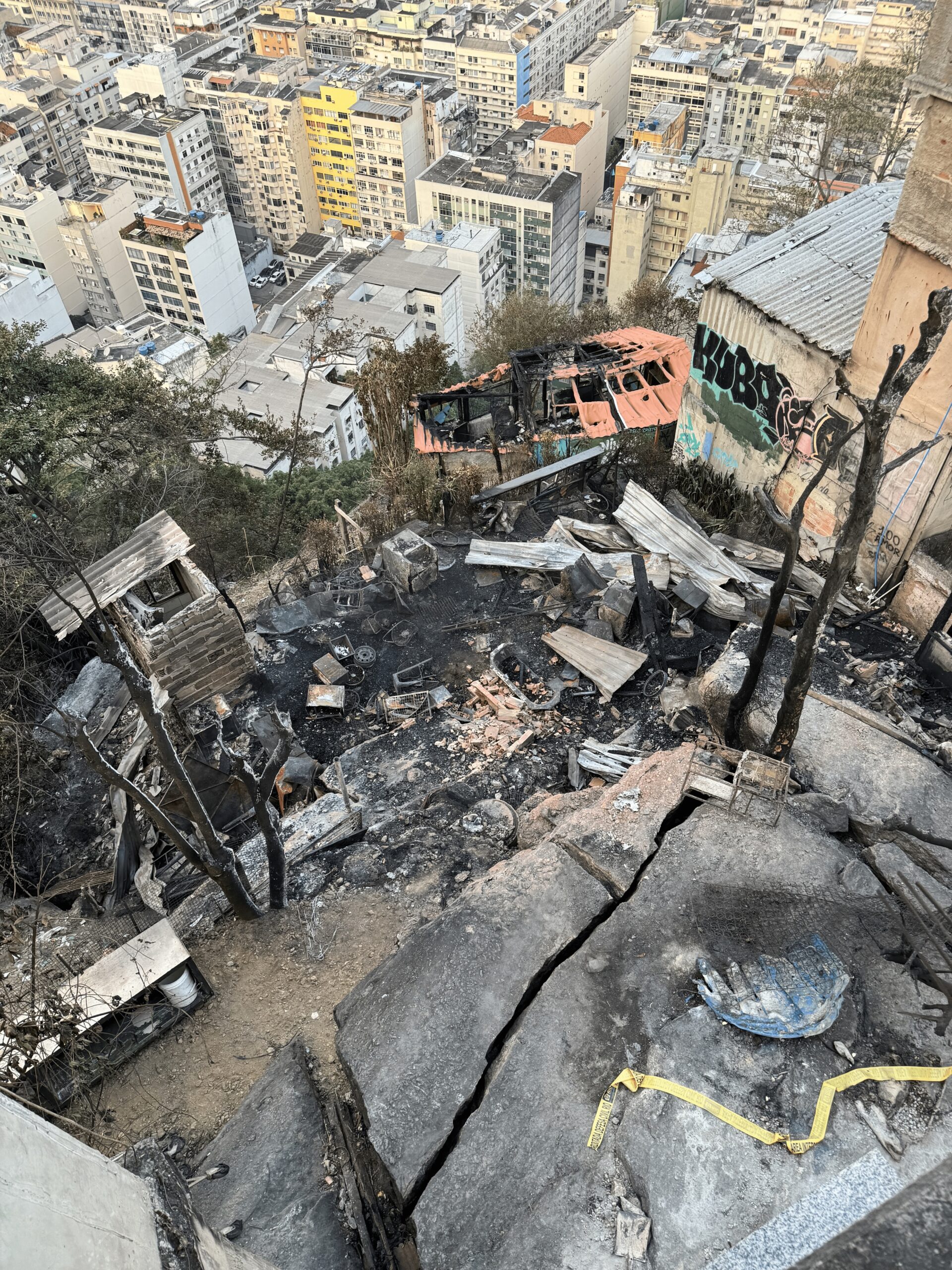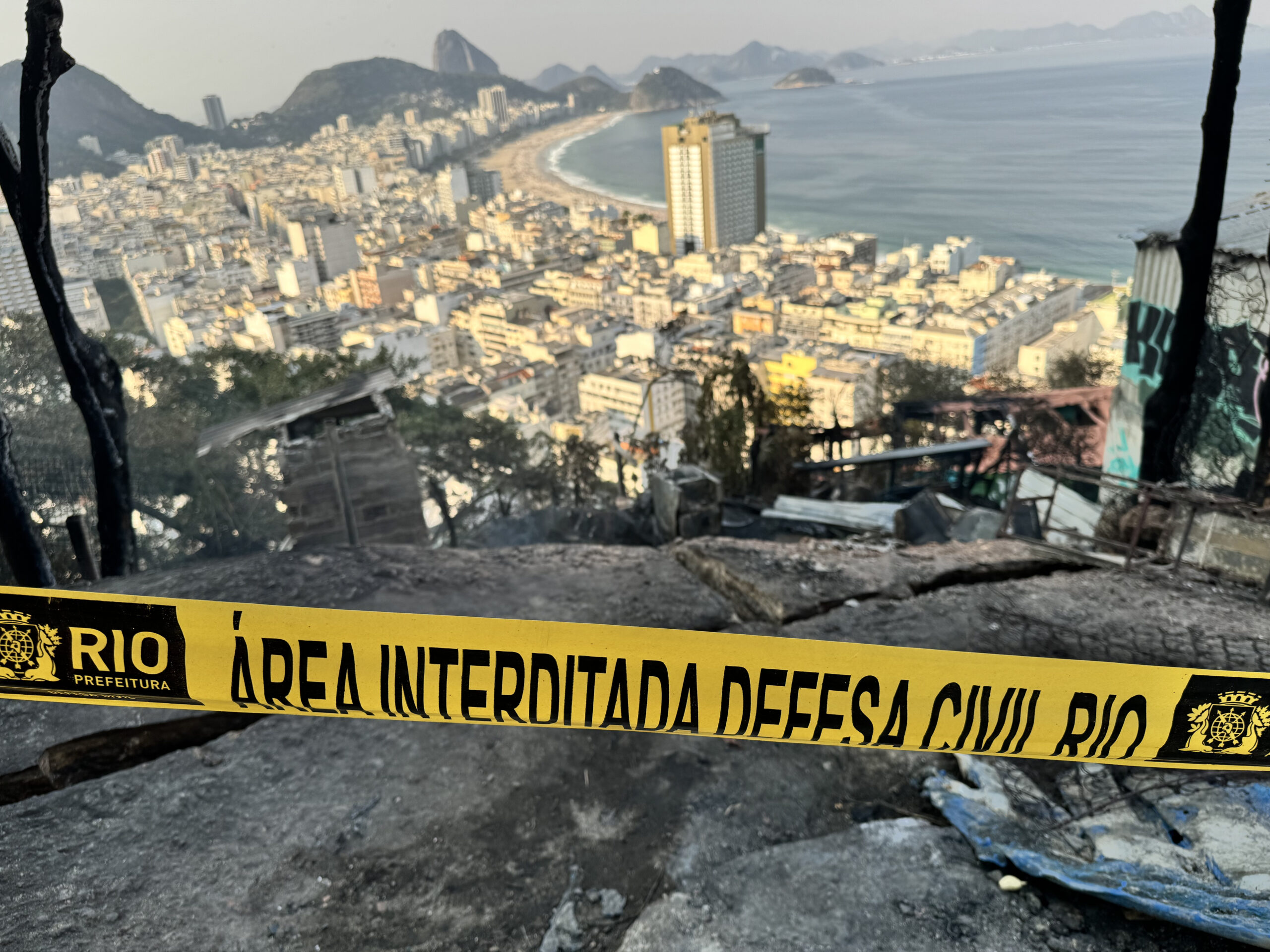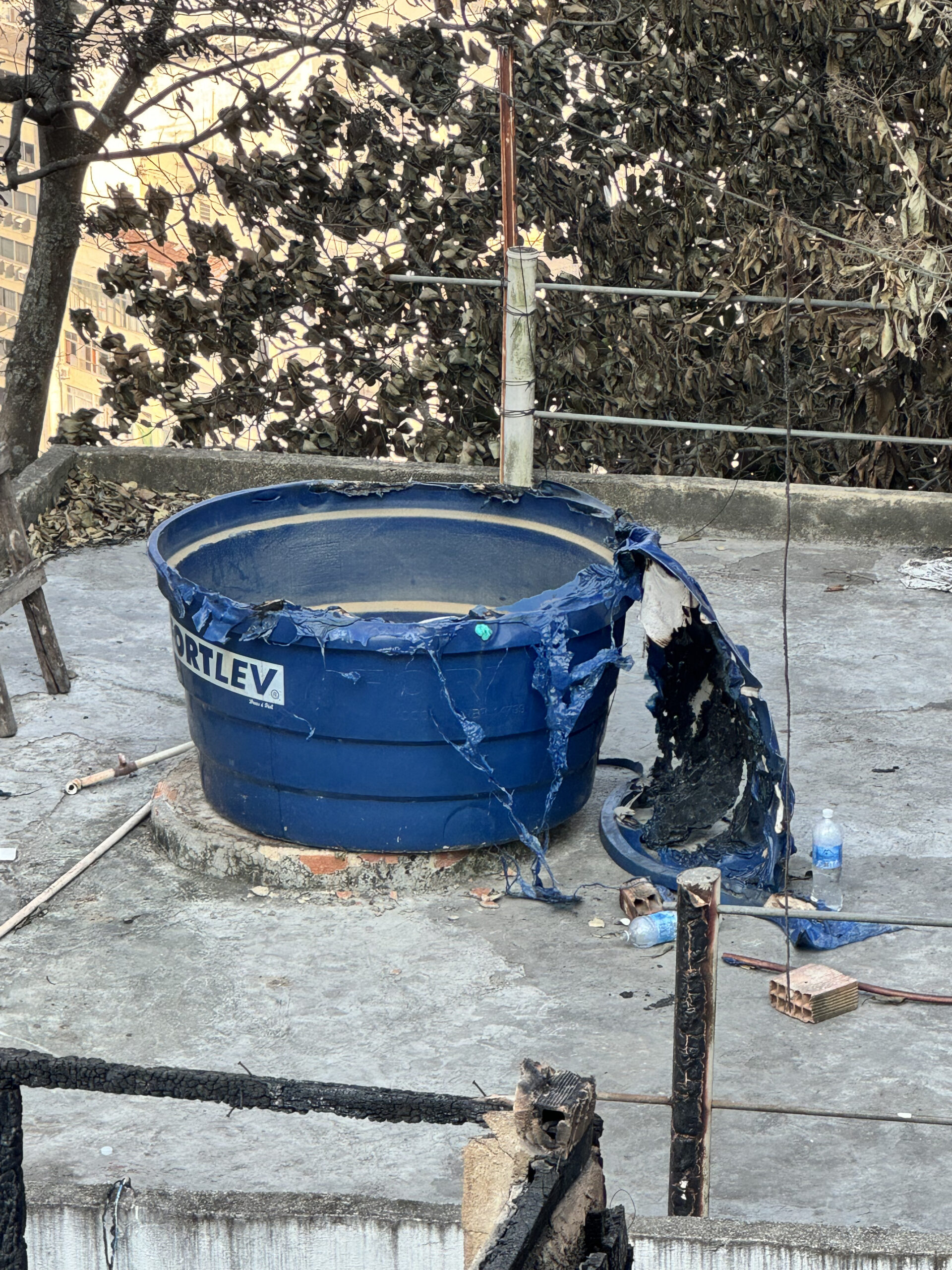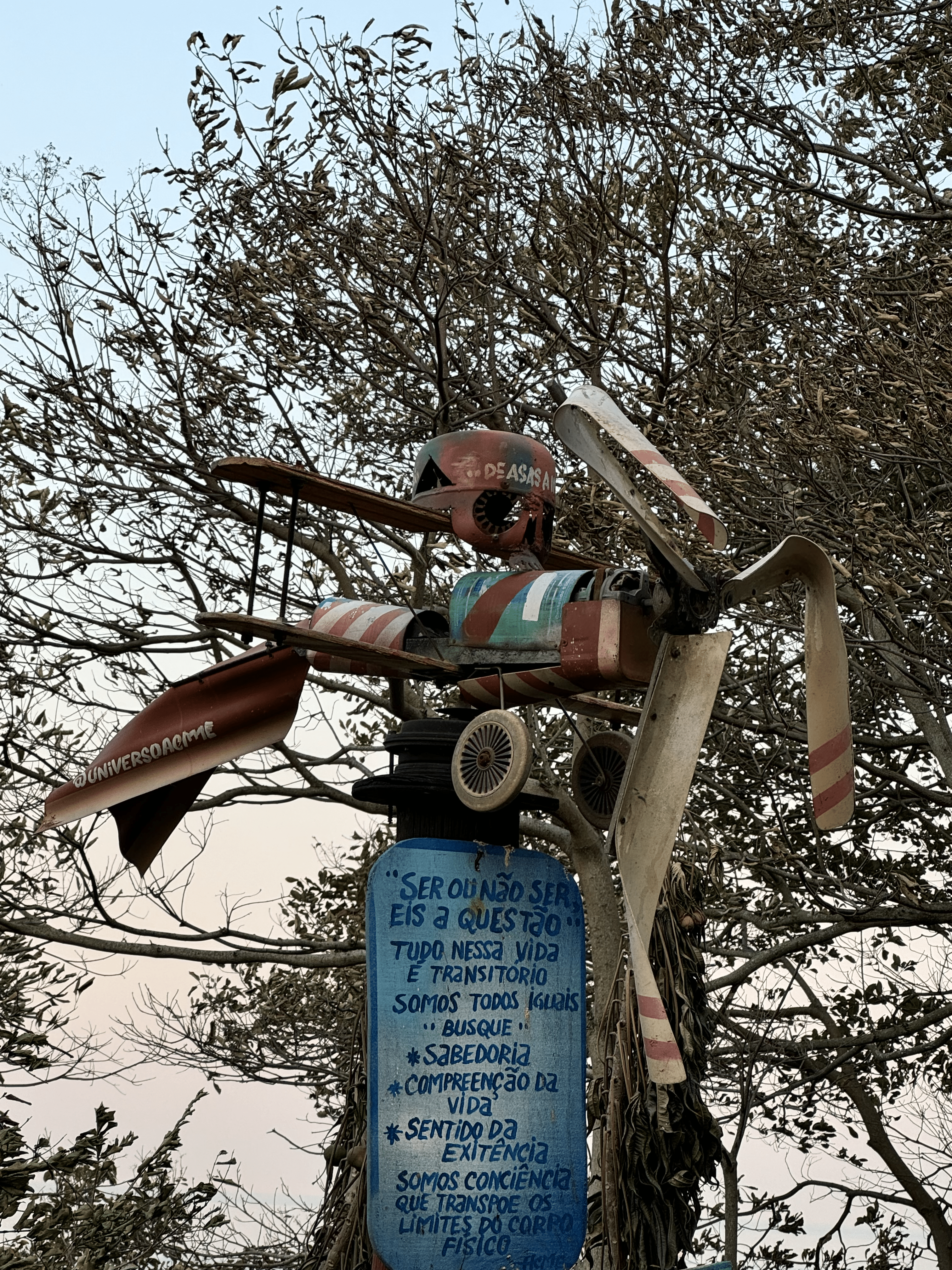
 This article is part of a series created in partnership with the Behner Stiefel Center for Brazilian Studies at San Diego State University, to produce articles for the Digital Brazil Project on environmental justice in the favelas for RioOnWatch.
This article is part of a series created in partnership with the Behner Stiefel Center for Brazilian Studies at San Diego State University, to produce articles for the Digital Brazil Project on environmental justice in the favelas for RioOnWatch.
On the morning of August 7, 2024, a fire struck Pavão, one of the favelas that make up the PPG Complex, which also includes the favelas of Pavãozinho and Cantagalo, located on a hillside that separates the beachfront neighborhoods of Copacabana and Ipanema in Rio de Janeiro’s touristic South Zone. The flames destroyed a community library and a new viewpoint bar that had recently been added to the State tourism office’s route of recommended viewpoints. A thick gray cloud enveloped the favelas, leading some residents to seek medical attention at the Emergency Care Unit (UPA) after inhaling smoke.
According to residents, the fire started in the vegetation at the top of the hill at around 11am and quickly spread due to the high temperature, strong sun, and winds. In the middle of Rio’s winter, according to the Center for Weather Forecast and Climatic Studies (CPTEC/INPE), the day’s high reached 36°C, with hot winds coming from the north-northeast and low humidity ranging between 20% and 30%, bordering on alert and attention stages. The city had not seen rain for at least a week. This was enough for the flames to spread through the upper part of Pavão, reaching the forested area and destroying the Ninho das Águias Community Library and the Bar do Jardim viewpoint bar, both built with repurposed materials.
Ver essa foto no Instagram
“At around 12:30pm, I noticed there was a fire on the rock up high, but I never imagined it would spread… Suddenly, I opened my door, and the fire had already engulfed our library. Thank God our house wasn’t affected, but the social project that has been running for eleven years, serving about 50 children, was destroyed.” — Iani Antunes, one of the founders of the Ninho das Águias Community Library and resident of Pavão
Ver essa foto no Instagram
Firefighters were called to the scene at 11:30am. They reported difficulties in controlling the flames due to the amount of waste that had been improperly discarded in the area for years, a result of government negligence in managing solid waste.
“Unfortunately, we don’t have an environmental education program here, even though this area deserves more attention to preserve the forest, the Atlantic Forest. It’s not just lack of political will; there’s also a need for greater resident awareness and public policies that include the favela.” — Mônica Santos, resident of Pavão
Some pigs, kept as pets by residents, were caught in the fire and did not survive. So far, no human casualties have been reported.

The Civil Defense was called to assess the damage and the safety of the remaining structures of the bar and the library, and decided to cordon off the bar area. However, no residents lost their homes.
“I’ve seen fires in the woods before, but never one of this magnitude. The weather and the trash contributed a lot to the rapid spread of this fire. The only factor that stopped it from causing more damage to more residents was the strength of the community. Residents were all providing water from their tanks to help put out the fire, and we also joined in to help the firefighters carry their equipment. It could have been much worse.” — Romeu Soares, resident of Pavão

The fire in Pavão highlights the climatic vulnerability of favela territories, regardless of the neighborhood in which they are located. It also reveals that climate change, compounded by environmental racism, will increasingly impact Black and low-income people, who have historically been the majority in favelas. This scenario underscores the need for more effective and preventive policies in Rio de Janeiro to make favelas resilient to climate change.
“It’s very sad to see that even though the media mentions climate change every day, the poorest populations still hold onto old habits—like improper waste disposal. And, just as it happened here, it can happen anywhere. It’s crucial to further increase investments in this area so that this information reaches people in a more engaging and clear way… [It’s sad to] see two enormously important sites for our community, both built with so much effort, being destroyed like this.” — Myrela Matos, resident of Pavão

About the Author: João Victor Teodoro was born and raised in the Pavão-Pavãozinho/Cantagalo (PPG) favela complex. Since 2013, he has been active in social impact and climate activism within favela communities through grassroots communication. He holds a degree in Social Urban Planning from INSPER and is pursuing a degree in International Relations. Teodoro has worked as a correspondent for the grassroots newspaper Voz das Comunidades, volunteered with the NGO Afroreggae, served as a state ambassador for the UN’s 2019 International Youth Day, coordinated the environmental training program Ambiente Jovem, and is a member of the Rio de Janeiro Commercial Association’s (ACRJ) Youth Council. He also serves as 3rd Director of the Favela Museum (MUF) in PPG.
